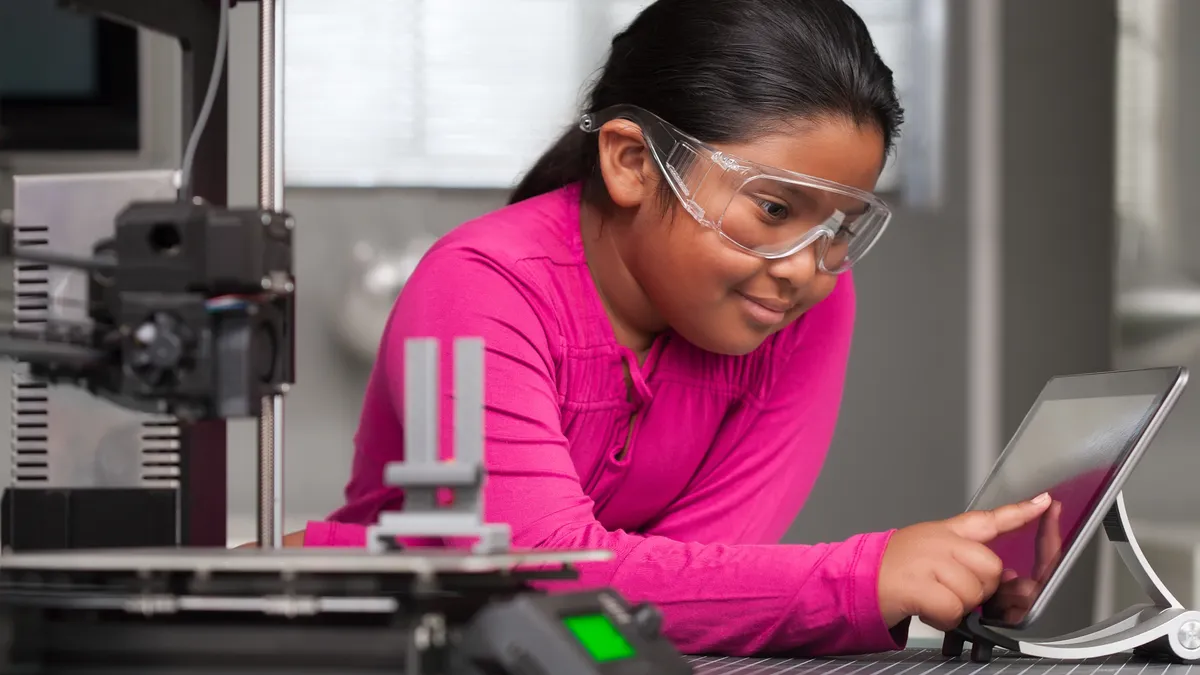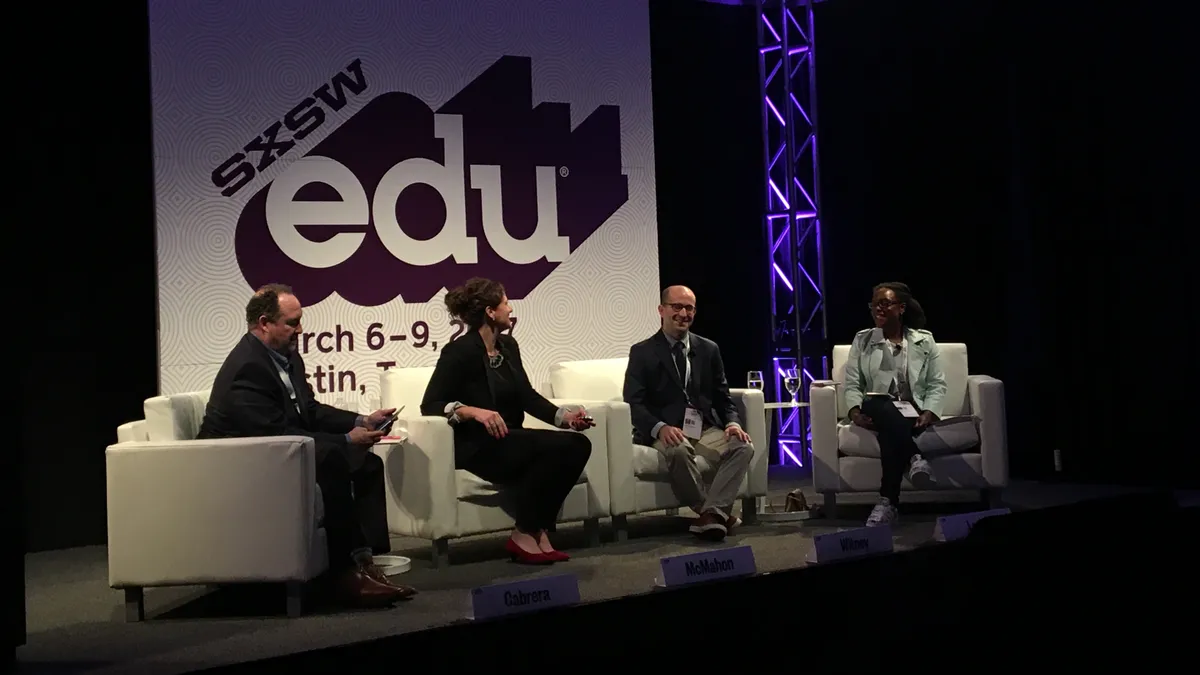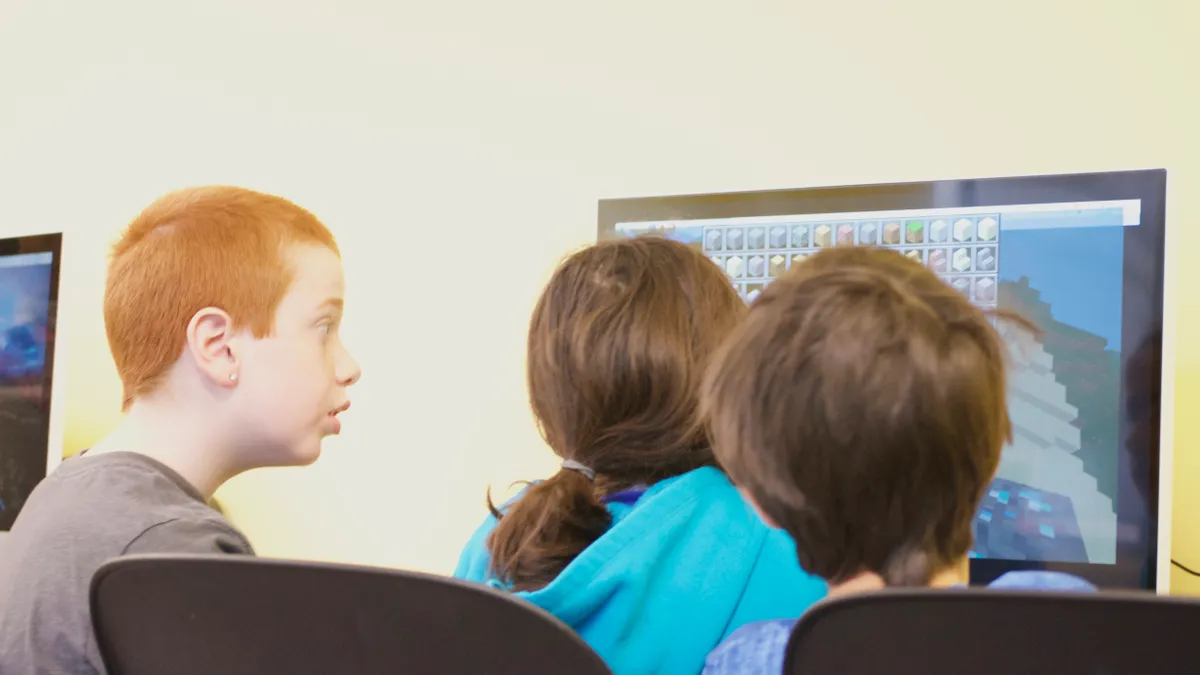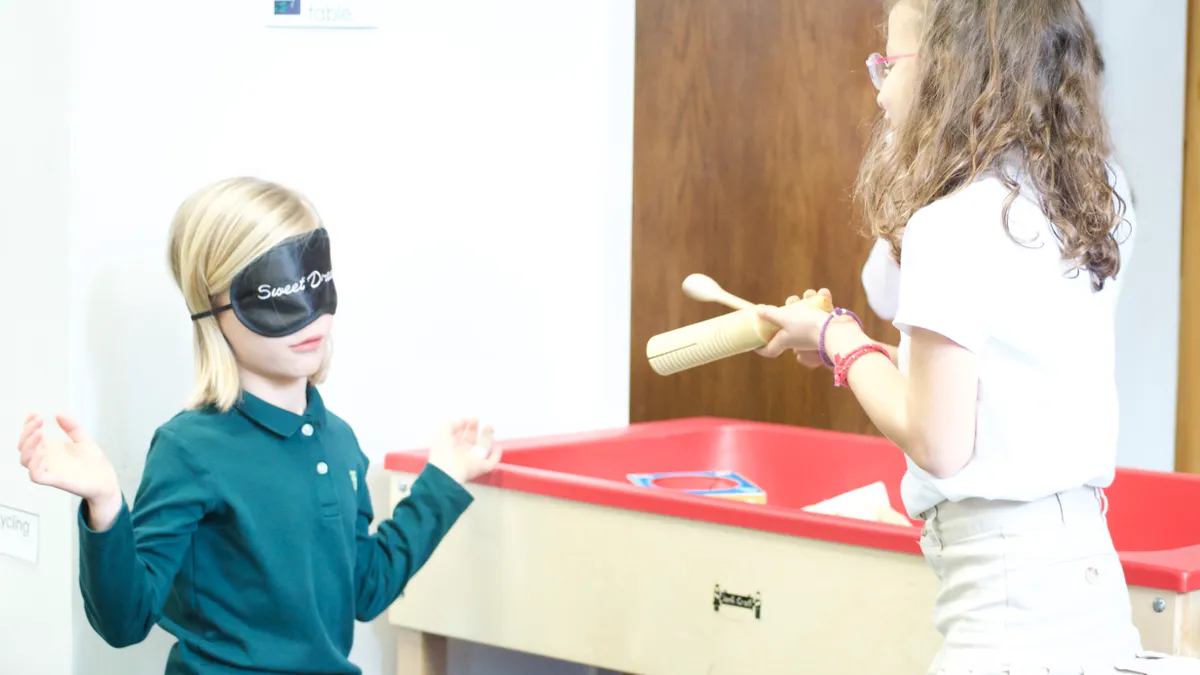Curriculum: Page 79
-
Deep Dive
San Diego-area students experience 'Hamilton'
Lessons based on the smash hit are taking place in history classrooms across the country.
By Linda Jacobson • Jan. 12, 2018 -
A great STEM education starts with teacher training
For students to get the science, tech, engineering and math education they need, teachers need to continue their own education.
By Lauren Barack • Jan. 10, 2018 -
 Explore the Trendline➔
Explore the Trendline➔
 Permission granted by Benetech
Permission granted by Benetech Trendline
TrendlineSTEM
From AI to quantum physics, STEM learning opportunities in K-12 are expanding to keep pace with related fields.
By K-12 Dive staff -
Designing lessons in the dark?
Educators have a tough time locating the most recent studies when building curriculum.
By Lauren Barack • Jan. 10, 2018 -
Deep Dive
Algebra, Spanish and Bank Loans 101: The growing need for financial literacy in high school
Few would disagree that teaching financial literacy to K-12 students is important, so why are high-quality lessons on topics like money management so few and far between?
By Lauren Barack • Jan. 10, 2018 -
Who said equations can't equal fun?
How to get students amped to read angles, measure distances and add fractions remains a challenge in many schools.
By Lauren Barack • Jan. 10, 2018 -
Aptitude tests may limit students' career options, passions too early
Students and educators should instead approach these assessments cautiously, using them to start a conversation about interests and ambitions rather than viewing them as definitive results.
By Lauren Barack • Jan. 10, 2018 -
Technical writing opens literacy learning opportunities in computer science
Focusing on computational literacy and the importance of verbs in programming can help educators strengthen coding instruction and literacy skills.
By Roger Riddell • Jan. 10, 2018 -
Deep Dive
Early learning, educational equity listed as most important topics in 'what's hot' literacy survey
Findings show, however, that some different topics are trending.
By Linda Jacobson • Jan. 8, 2018 -
Wanted: Innovative early education models
A competition from the Saul Zaentz Early Education Initiative at the Harvard Graduate School of Education will provide funding for new ideas, prototypes and approaches that are ready to be scaled more widely.
By Linda Jacobson • Jan. 5, 2018 -
Auto shop combines STEM learning with vocational education
Learning the inner workings of today’s automobiles offers hands-on application of STEM principles as well as a possible career path.
By Amelia Harper • Jan. 5, 2018 -
Universal Design for Learning can create an inclusive environment for students
Using UDL concepts may provide students with different learning styles and abilities an equal opportunity to learn together.
By Amelia Harper • Jan. 3, 2018 -
Are microcredentials the answer to demonstrating skills learned in makerspaces?
Credentials, like badges, can help students demonstrate skills gained via nontraditional environments, such as makerspaces.
By Roger Riddell • Jan. 2, 2018 -
Districts seek new ways to recruit bilingual educators
With a greater demand for bilingual educators, school districts are looking closer to home to develop students and paraprofessionals for future teaching roles.
By Amelia Harper • Jan. 2, 2018 -
Deep Dive
Literacy, music and teachers as innovation engines: The 10 most-read K-12 stories of 2017
With 2018 just beginning, take a look back at Education Dive's most popular features of the past year.
By Roger Riddell • Dec. 26, 2017 -
STEM must include focus on literacy, critical thinking as much as hard skills
Graduates who can solve problems and communicate effectively will be more successful in an economy where the fields they enter could be disrupted and many of the jobs they'll eventually hold don't yet exist.
By Roger Riddell • Dec. 22, 2017 -
Focus on early literacy intervention can improve longterm academic success
California’s "The Big Lift" initiative for pre-school and early elementary students is improving grade-level reading skills.
By Amelia Harper • Dec. 21, 2017 -
How will ESSA's call for more well-rounded education impact PE?
Schools are instructing students to create fitness plans, use tools such as FitnessGram to track progress toward fitness goals, and develop "physical literacy."
By Amelia Harper • Dec. 21, 2017 -
Twitter chats can boost student voice, enhance digital citizenship
Administrators can also utilize the chats as an opportunity to engage students and parents in the decision-making process.
By Roger Riddell • Dec. 19, 2017 -
Study: Cooperative learning reduces risk of alcohol use in middle-schoolers
Researchers found a weaker link between students' willingness to use alcohol at the beginning of 7th grade and their actual use near the end of the school year.
By Linda Jacobson • Dec. 19, 2017 -
More classrooms making time for play in early grades
Omaha schools aim to bring balance to the primary grades after accountability measures shifted attention toward testing and teacher-led instruction.
By Linda Jacobson • Dec. 15, 2017 -
Deep Dive
Recess: Administrators share 4 fun ways to maintain engagement ahead of holidays
Keeping students focused while also giving them a chance to reflect on the year can be particularly difficult with the prospect of off-days looming.
By Roger Riddell • Dec. 15, 2017 -
Achieving educational equity requires personalized approach for students and teachers
Digital, learner-centered strategies are closing achievement gaps in a Maryland district.
By Amelia Harper • Dec. 15, 2017 -
Let's move: Physical fitness programs boost test scores in Minnesota schools
Students who met recommended aerobic fitness levels were more likely than their peers to be proficient in reading and math on state standardized tests.
By Linda Jacobson • Dec. 14, 2017 -
Apple brings coding education program to Chicago in latest ed push
The "Everyone Can Code" program, which centers around the tech giant's Swift coding language and uses coursework developed by the company, is expected to reach close to 500,000 students in the city.
By Roger Riddell • Dec. 14, 2017 -
'Book tastings' offer literary samples to encourage student engagement
The method may help students explore their literary options while providing teachers with a fresh way to differentiate instruction.
By Amelia Harper • Dec. 14, 2017



